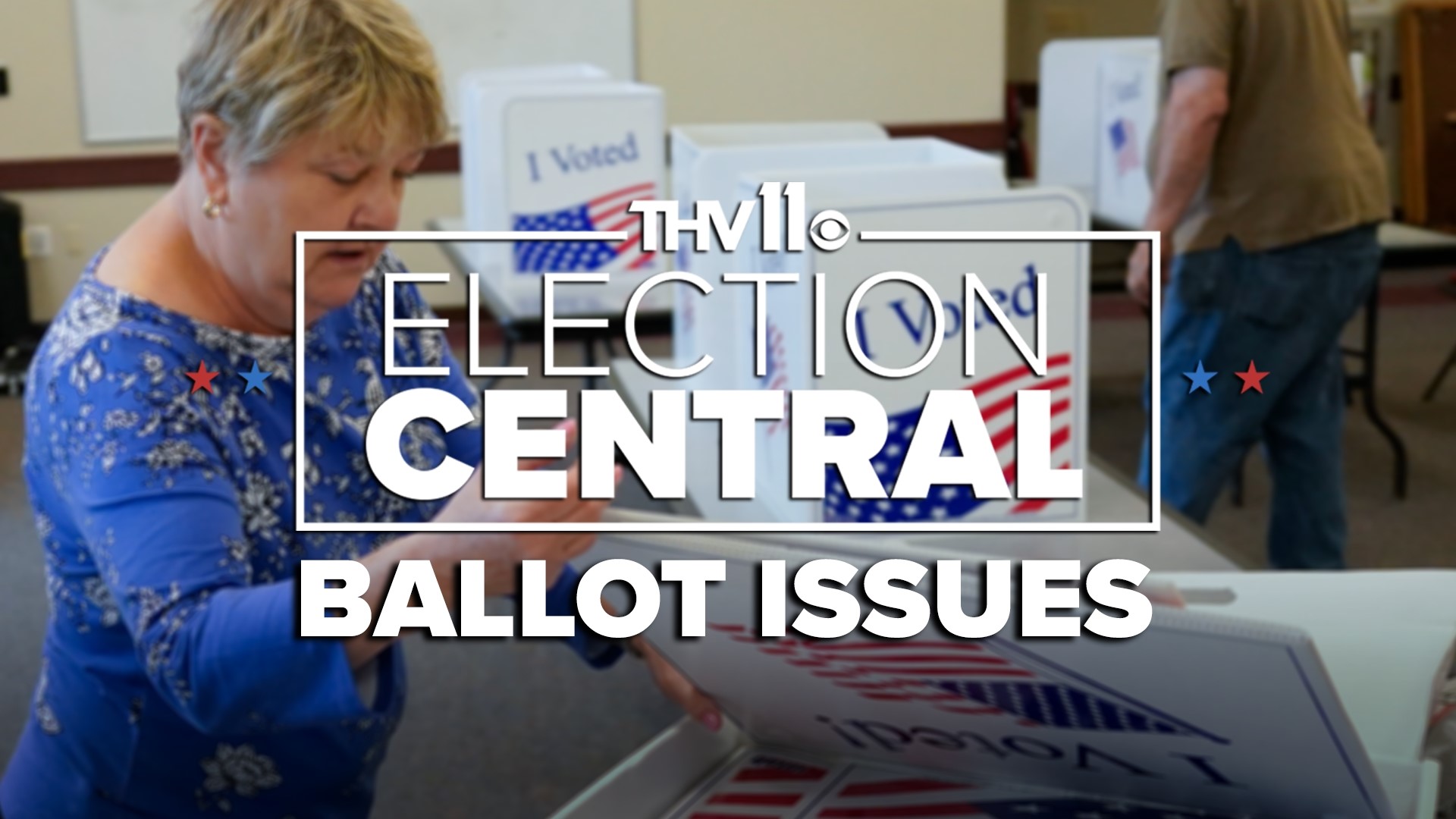LITTLE ROCK, Ark. — During the 2022 election cycle in Arkansas, much of the attention was placed on recreational marijuana, Issue 4 on this year's ballot.
With the failure to pass recreational marijuana now confirmed for Arkansans on Tuesday night, here's how the three other amendments performed during the 2022 elections.
Issue 1
Arkansans voted to deny Issue 1, which would change how the legislature works in the state.
As of 11:30 p.m., around 61% of voters said they did not want the measure.
With Issue 1's rejection, this means that state senators and representatives won't be able to call themselves into special sessions.
This right remains an action that the Governor of Arkansas can solely use.
Supporters of the amendment believe that the governor has "too much authority" during these special sessions, while opponents of the issue believe that the governor's authority is appropriate.
Issue 2
Aside from recreational marijuana, Issue 2 was perhaps the next amendment that caught the most attention from voters this year.
Arkansans voted to deny Issue 2, with 59% voting against the measure.
With Issue 2's rejection, the simple majority 50% vote needed for a bill won't change to the proposed 60% supermajority.
The amendment was recently in the spotlight due to the potential ramifications that it could have on future elections in Arkansas.
Some voters believed that the measure would make it more difficult for Arkansans to pass ballot measures in the state, while supporters argued that it would actually give those in the Natural State more authority.
Voters honed in on the connection of Issue 2 and the residual effect that it could have if it passed and Issue 4 failed.
Some believed in this scenario, that it could make it more difficult for recreational marijuana to get passed in Arkansas in the future.
Issue 3
As of 11:45 p.m., Issue 3 was still too close to be called.
Currently, 51% voters voted against the issue while 49% voter for it.
The amendment was aimed at religious freedom in Arkansas, putting a limit on legal language that can be used to impact religious practices, such as the government closing churches due to a spreading virus.

